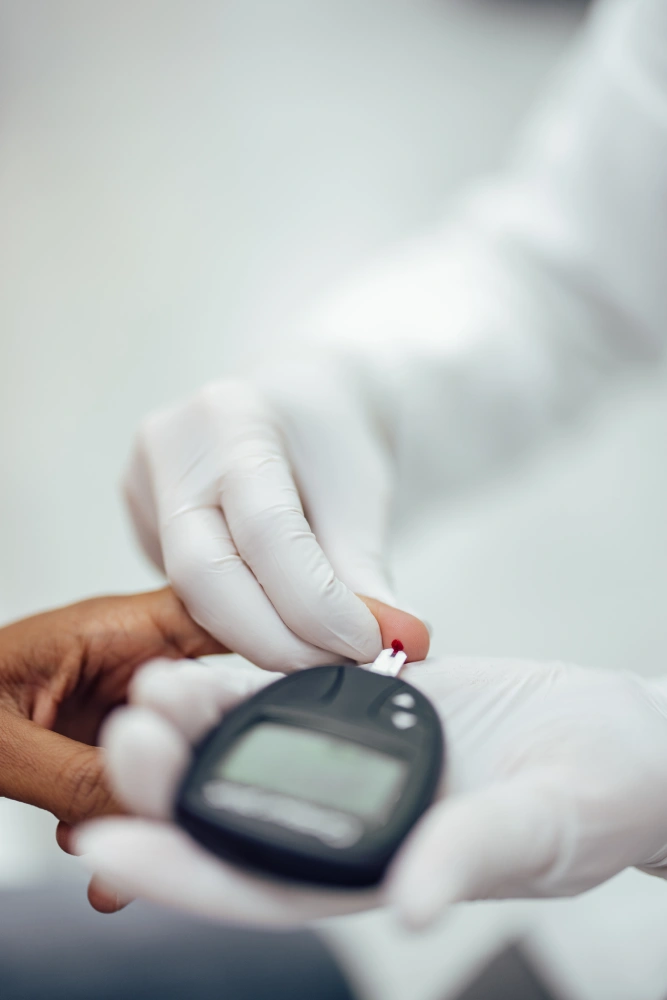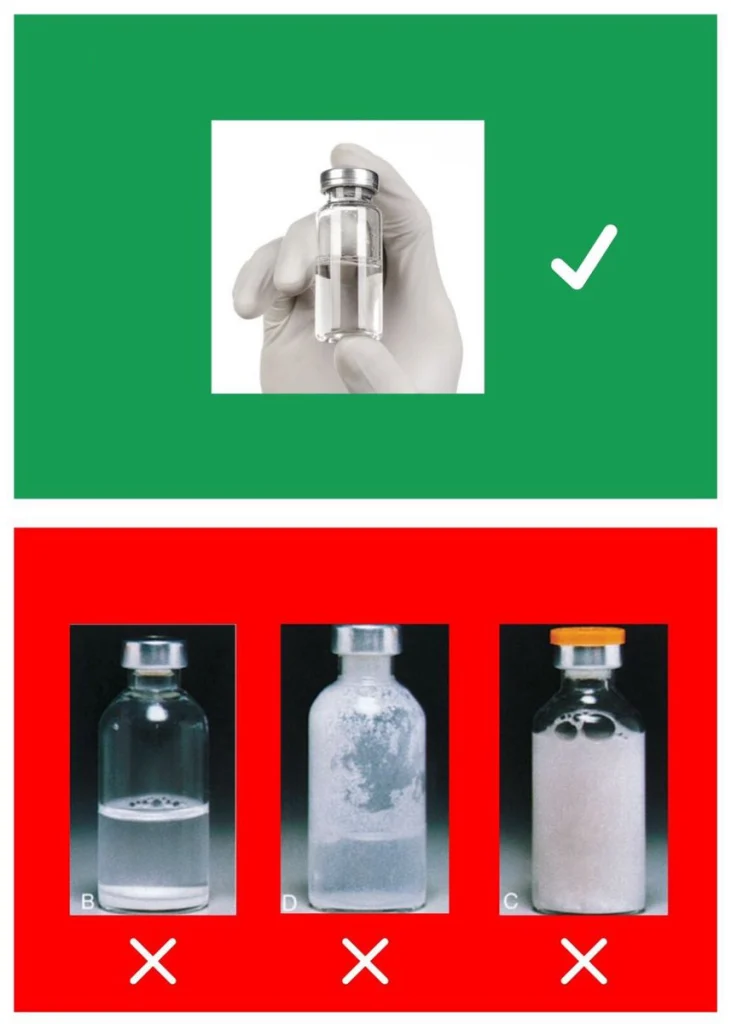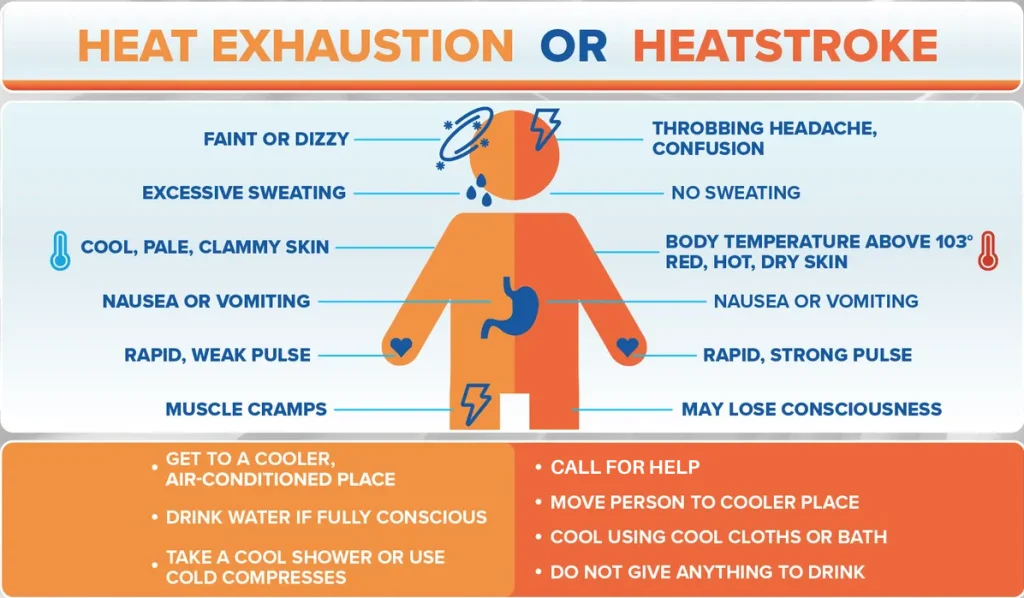- September 16, 2024
- Diabetes Kenya
- Comment: 0
- Uncategorized
Diabetes and Hot Weather
Enjoying the sun is something many people in Kenya look forward to, especially during the hotter months. But if you have diabetes, managing your blood glucose (sugar) levels in hot weather can be more challenging. By being cautious and planning ahead, you can still enjoy the sun while keeping your diabetes under control.
How Hot Weather Affects Blood Sugar Levels
Sitting in the sun for long periods can make your blood sugar levels higher because you’re less active. On the flip side, if you take insulin, it may be absorbed more quickly from the injection site in warm weather, increasing the risk of hypos (low blood sugar).
If you carefully manage your diabetes, there’s no reason why you can’t enjoy the sun like everyone else. Below are tips to help you stay safe while keeping your blood sugar in check during hot weather.
Check Blood Sugar Levels Regularly
If you usually check your own blood sugar levels, it’s important to do this more often during hot weather. Be ready to adjust your diet or insulin dose if needed. If you’re planning to be active, such as swimming or walking, eat some extra carbohydrates before or as a snack. Always check your levels beforehand and carry something sugary to manage a potential hypo.

Keep Meters and Test Strips Away from the Sun
Extreme temperatures can affect blood glucose meters and test strips, leading to inaccurate readings. Keep them at room temperature and out of direct sunlight. Don’t refrigerate them, as cold temperatures can also produce misleading results.
Using Diabetes Technology in the Sun
If you use insulin pumps, CGMs, or Freestyle Libre sensors, follow the manufacturer’s guidelines and advice from your healthcare team. Avoid getting sunscreen on your insertion site when changing a sensor or pump. Clean the area thoroughly before applying the new device.
Insulin pumps may need their reservoir changed more frequently, as insulin warms up faster in hot weather. Cover your pump with a towel when sunbathing, and if your blood sugar levels are unexpectedly high, the insulin in your pump may have been damaged by the heat, so consider changing it.
Store Insulin Properly
If you take insulin, it’s important to store it properly in hot weather. Insulin is best kept in a fridge or in a cool bag to prevent it from overheating. If your insulin has been exposed to extreme heat, it may no longer be effective. Damaged insulin can appear cloudy, grainy, or discolored (brownish tint). If you suspect your insulin is damaged, do not use it, and consult your healthcare provider.
Other diabetes medications, such as tablets, should also be kept as close to room temperature as possible. Check the patient information leaflet for specific storage instructions.

Stay Hydrated
Hot weather naturally makes you sweat, which is your body’s way of cooling down. However, this can lead to dehydration, especially if you’re active. Drink plenty of water or sugar-free soft drinks to stay hydrated. Dehydration increases the risk of hyperosmolar hyperglycemic syndrome (HHS) or Diabetic Ketoacidosis (DKA). Always carry drinks with you and take regular sips.

Other Tips for Staying Safe in the Sun

Clothing
Wear long sleeves, loose trousers, a hat, and sunglasses with a UV 400 label to protect yourself from the sun.

Sunscreen
Apply sunscreen to exposed areas of your body 15 to 30 minutes before going outside, and reapply every two hours.

Foot care
If you have neuropathy, you may not feel your feet burning, so wear sunscreen on your feet and always wear sandals, flip-flops, or shoes on hot surfaces.
Heat Exhaustion
Heat exhaustion occurs when the body struggles to keep cool. Symptoms include:

Dizziness

Tiredness

Pale skin
These symptoms can also be caused by unstable blood sugar levels, so it’s important to test regularly. Heat exhaustion requires immediate treatment. Move to a cool place and sip a cold drink. If untreated, it can lead to heat stroke, a potentially life-threatening condition.
When travelling to hot regions, such as coastal or tropical areas in Kenya, take special precautions to protect your insulin and yourself:
Symptoms of heat stroke include:
- Confusion
- Hallucinations
- Rapid breathing
- Convulsions
These require immediate medical attention.

FAQ
Is Sunshine Good for Diabetes?
Nice weather can encourage more physical activity, which can help improve insulin sensitivity and combat problems like heart disease and high blood pressure. Increased activity can impact your blood sugar levels, so monitor them carefully, especially if you’re at risk of hypos.
Being active outdoors can also benefit your mental health, reducing stress and boosting your mood.
When engaging in outdoor activities, always carry hypo treatments, like sugary snacks, with you.
Can Vitamin D Reduce the Risk of Type 2 Diabetes?
Researchers have been investigating whether vitamin D supplements can prevent the development of type 2 diabetes. Although some research has shown a small positive effect, more studies are needed.
However, it’s recommended that everyone, including people with diabetes, take a vitamin D supplement during the winter months to help with calcium absorption and immune system support.
For more information, visit the vitamin D section on the NHS website.



